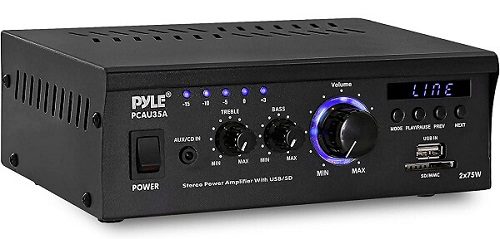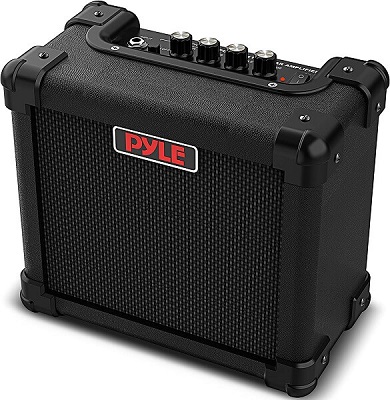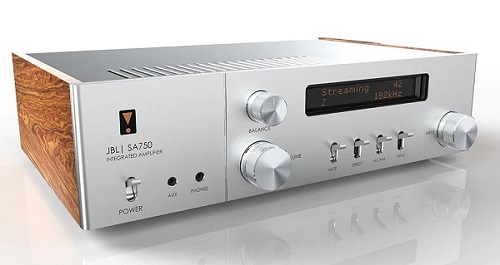A perfect harmony between an amplifier and speakers plays a vital role in facilitating a wonderful audio experience. That’s the reason it’s very important to get the best amplifier for your speakers. Moreover, picking the right one is paramount for audiophiles to boost their listening experience.
If you are stuck in picking an ideal amplifier for your speakers (or) stuffed with too many questions don’t worry. We will help you out. In this article, we will take you over every detail of amplifiers including their working principle, basic terminology, types, and various factors needed for choosing the best one.
Outline
ToggleOverview of Amplifiers
An amplifier is an electronic device that is used for amplification of the signals. They are widely used in wireless communications & broadcasting and audio devices to increase voltage, current (or) power of signals. Basically, amplifiers are a part of electronic (or) electrical circuits to improve the strength of input signals. Furthermore, they increase the amplitude of signal waveform without changing any other parameters like frequency and shape of the wave.
Working Principle
The amplifier principle is to generate an output signal that is a replica of the input signal with a greater magnitude. An input signal is given at a forward-biased junction and the output is collected across the reverse-bias junction. The input side, through which the signal is applied, has a low resistance value. Therefore, a small change in the input can result in a large change in the output.
The amplifiers are equipped with various components including transistors, pre-amplifiers, and power amplifiers. Transistors are the heart of most amplifiers. Pre-amplifiers process and control the incoming audio signals while power amplifiers amplify the signals to a level suitable for driving speakers.
Types of Amplifiers
Amplifiers are categorized into several types based on their application, characteristics, and operation.
1. Power Amplifiers

- Audio power amplifiers
- RF power amplifiers
- DC power amplifiers
2. Instrument Amplifiers

3. Integrated Amplifiers

Basic Amplifier Terminology
Before diving further let us look at the basic terminology used with amplifiers as it helps in choosing the best amplifier for your speakers.
- Watts: Watts are units of measurement for power. It is frequently expressed as amps X volts.
- Ohms: Ohms are units of resistance which is related to Ohm’s Law.
- Impedance: Impedance is measured in Ohms and relates to the resistance presented by the speaker to the amplifier. It is not a constant value and varies with the frequency of the signal delivered to it.
- Sensitivity: Keeping it simple, the higher the sensitivity, the less power you need.
What to Consider When Choosing an Amplifier For Your Speakers?
Choosing the wrong amplifier can put you at greater chances of damaging your speakers or the amplifier itself. Consider these factors while choosing an amplifier that is compatible with your speakers.
1. Power
Primarily it is very important to match the output power of an amplifier with the speaker’s power requirements. The speakers with higher sensitivity require less power and speakers with lower sensitivity need more power. That’s why check the speaker’s sensitivity and size of the room (or) listening environment while purchasing the amplifier.
You can easily find the power rating of the speaker under technical specifications. However, RMS (or) AES specifications can be used instead of continuous power ratings depending on the manufacturer.
2. Impedance
Matching the impedance of your amplifier and speaker is critical for preventing any compatibility concerns. The amplifier’s impedance rating should match or fall within the permitted range provided by the speakers.
The nominal impedance of your speakers can be found in the technical specifications on the manufacturer’s website. Most speakers have a nominal impedance of 4, 8, or 16 ohms. In case, if the impedance is not matched can lead to distorted sound and harm the equipment.
3. Speaker efficiency
A speaker’s efficiency is defined by the quantity of sound generated by a speaker from a given amount of power. Speaker efficiency is commonly measured in decibels. Higher-efficiency speakers produce greater volume levels with less power, but lower-efficiency speakers may be unable to provide desired volume levels.
As a result, it is critical to consider speaker efficiency when selecting an amplifier to achieve a suitable balance of power output and sound.
4. Audio Quality
It is crucial to check the audio quality before purchasing the amplifier. Go for the amplifier with low distortion levels and a good Signal-Noise Ratio (SNR) for obtaining clean and clear sound. In this process, try testing various devices and models available in the market to get the best one.
5. Connectivity
Check out all the connectivity options analog and digital inputs & outputs and wireless options as well to connect the amplifier to your audio sources and speakers.
6. Price
High-end amplifiers are more expensive, but they often come with more advanced features, higher build quality, and greater performance than low-end ones. Set a budget for yourself, prioritize your requirements and expectations, and look for those that are within your budget.
7. Speaker Specifications
Initially take note of your speakers’ features and specifications, such as power handling capability and impedance. Now select an amplifier that goes well with the specifications of your speaker for better synchronization. Make sure the amplifier you pick can effectively drive the speakers for the best performance and lifespan.
To sum up, hence this is all about choosing the best amplifier for your speakers. Consider all the mentioned factors to buy the best fit for your speakers. We hope this article is pretty helpful and guides you in selecting a perfect amplifier.
Amplifier for speakers – FAQs
Ans: Choose an amplifier that offers 1.5-2 times the continuous power rating of your speaker. This ensures that the speaker has enough power while leaving you with 3 dB of headroom.
Ans: Headroom is the difference between an amplifier’s standard operating level and the maximum level that it can deliver without excessive distortion.
Ans: Usually, some speakers come with built-in amplifiers. Whereas having separate amplifiers provide greater versatility, customization options, and potentially superior performance. It enables you to select an amplifier that is particularly tuned to the needs of your speaker.
Ans: Integrated amplifiers combine the preamplifier and power amplifier into a single device, which offers ease and space savings. Integrated amplifiers are frequently a popular choice because of their simplicity and adaptability.
Ans: The amplifier must be matched to the speakers to ensure compatibility and best performance. When choosing an amplifier to compliment your speakers, consider parameters like power output, impedance, and sensitivity ratings.
Ans: Here are the reasons to match the amplifier and speaker.
* You will not damage your speakers or amplifier by matching them.
* You’ll get a rich, clear sound without any unpleasant distortion.

